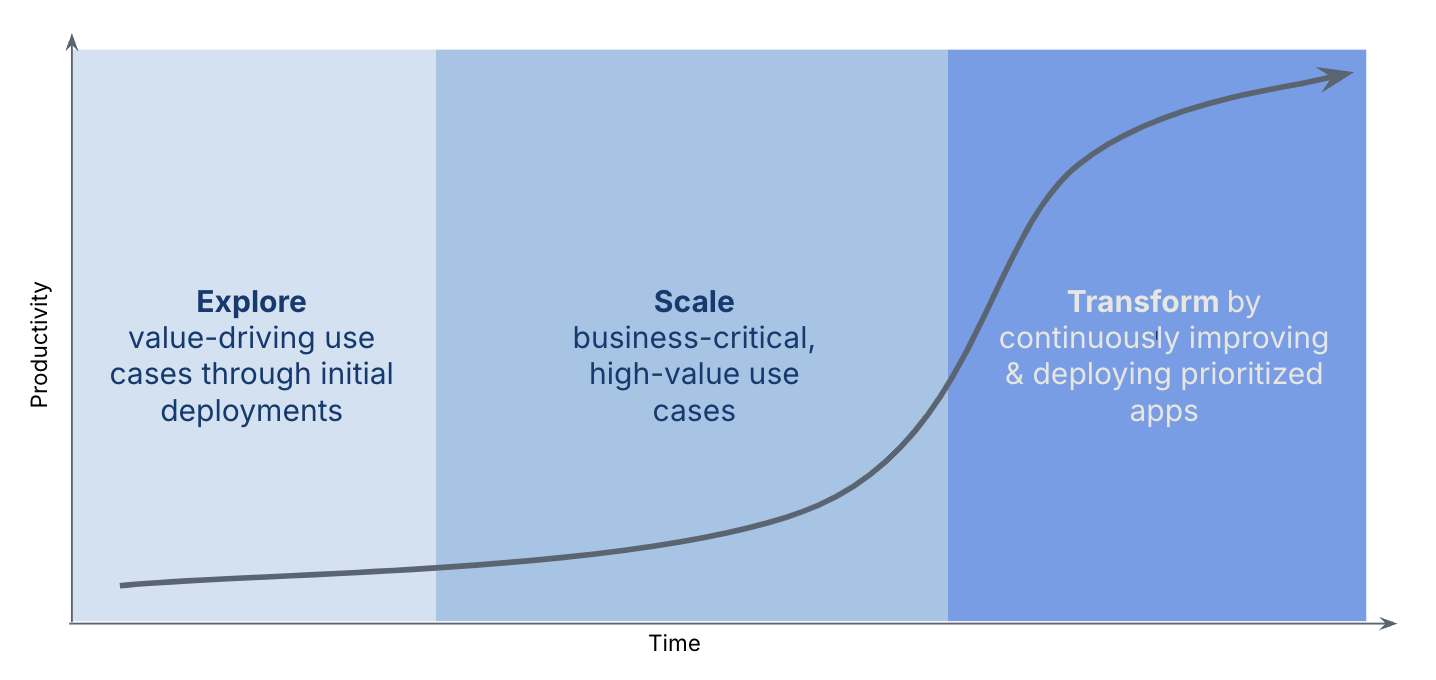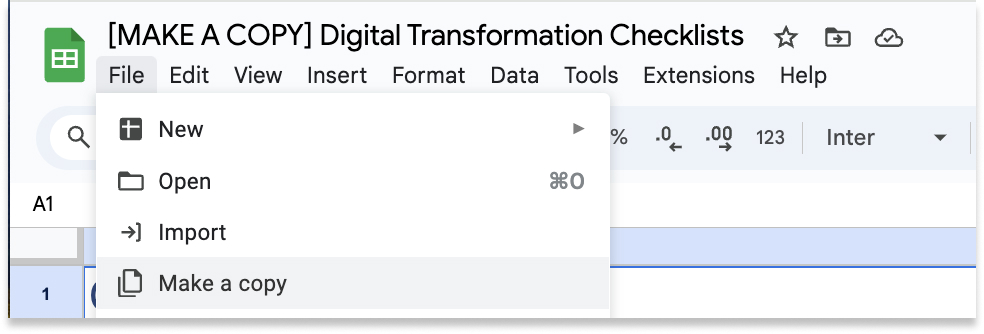Overview
Articles in this section provide high-level overviews and checklists to aid Tulip adoption and implementation. This information is most relevant to Digital Transformation Leads, IT Leads, Site Leads, and Tulip Champions.
Tulip’s Digital Maturity Model assesses progress toward Digital Transformation across four key dimensions:
At Tulip, we differentiate between simply digitizing processes and true digital transformation. Converting a single paper-based process into a digital format can reduce errors, enable quicker access to information, and lead to cost savings, but this approach does not fundamentally change how your organization operates, meaning productivity gains are limited. The underlying processes remain the same, except they are executed digitally using software or an app.
Digital transformation, on the other hand, is a comprehensive overhaul that requires cultural and structural changes to fully leverage digital technologies. It involves rethinking the way you approach solutions to maximize productivity and efficiency. Building and maturing organizational programs and methodologies for adopting, governing, and growing the Tulip platform is key. By taking full control of Tulip, you can achieve transformation across all facets of your operations, moving beyond simple improvements to realize significant, long-term gains.

Tulip’s maturity scoring scale assesses your organization’s current state within each dimension. By adding up your scores across each dimension, you can estimate your organization’s progress toward Digital Transformation.

Digital Maturity Checklists
These checklists are guidelines and may or may not apply to your organization. The intent is to help identify strengths and weaknesses when it comes to being ready to adopt and scale Tulip.
How to use the checklists
Preview the checklists below.
- Download the checklists on Tulip University.
- Make a copy of the Sheets to use the scorecard (Optional).
